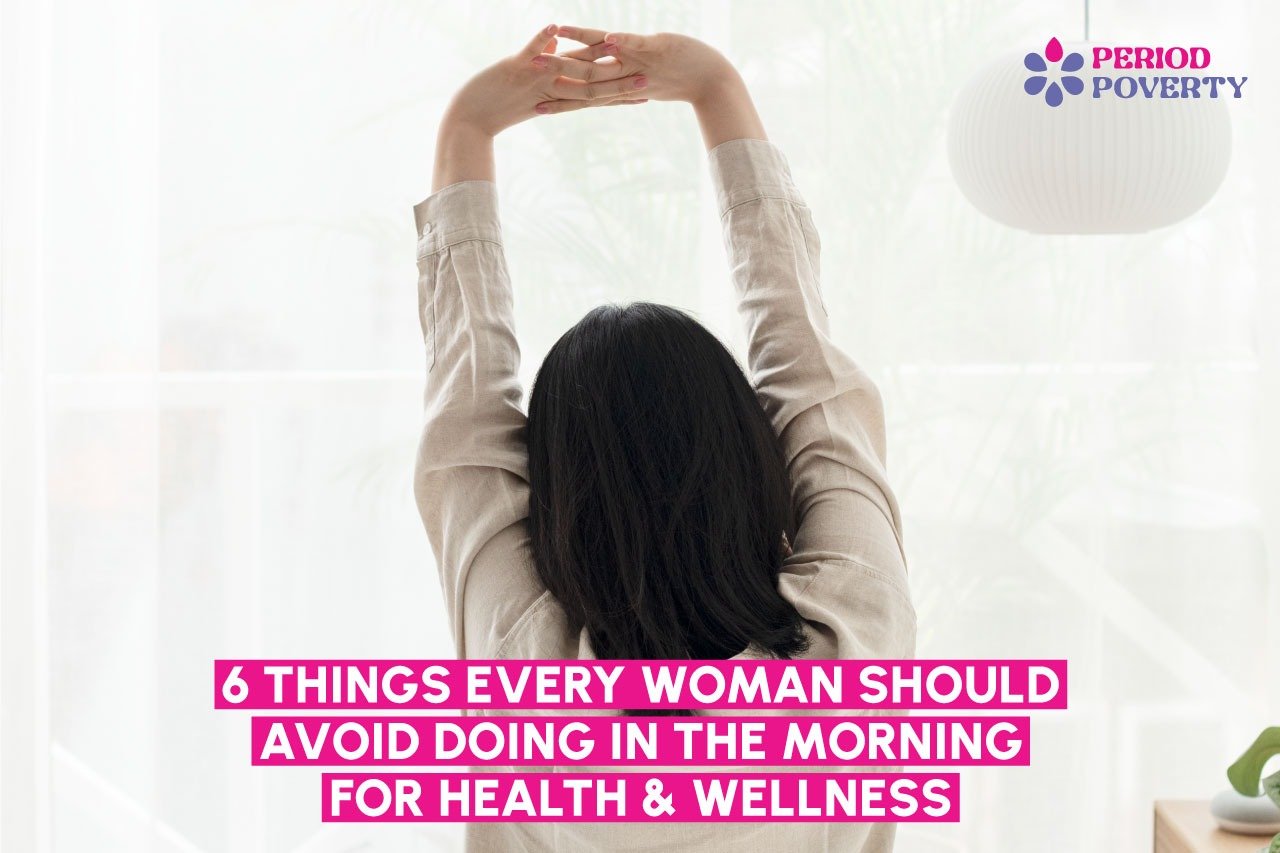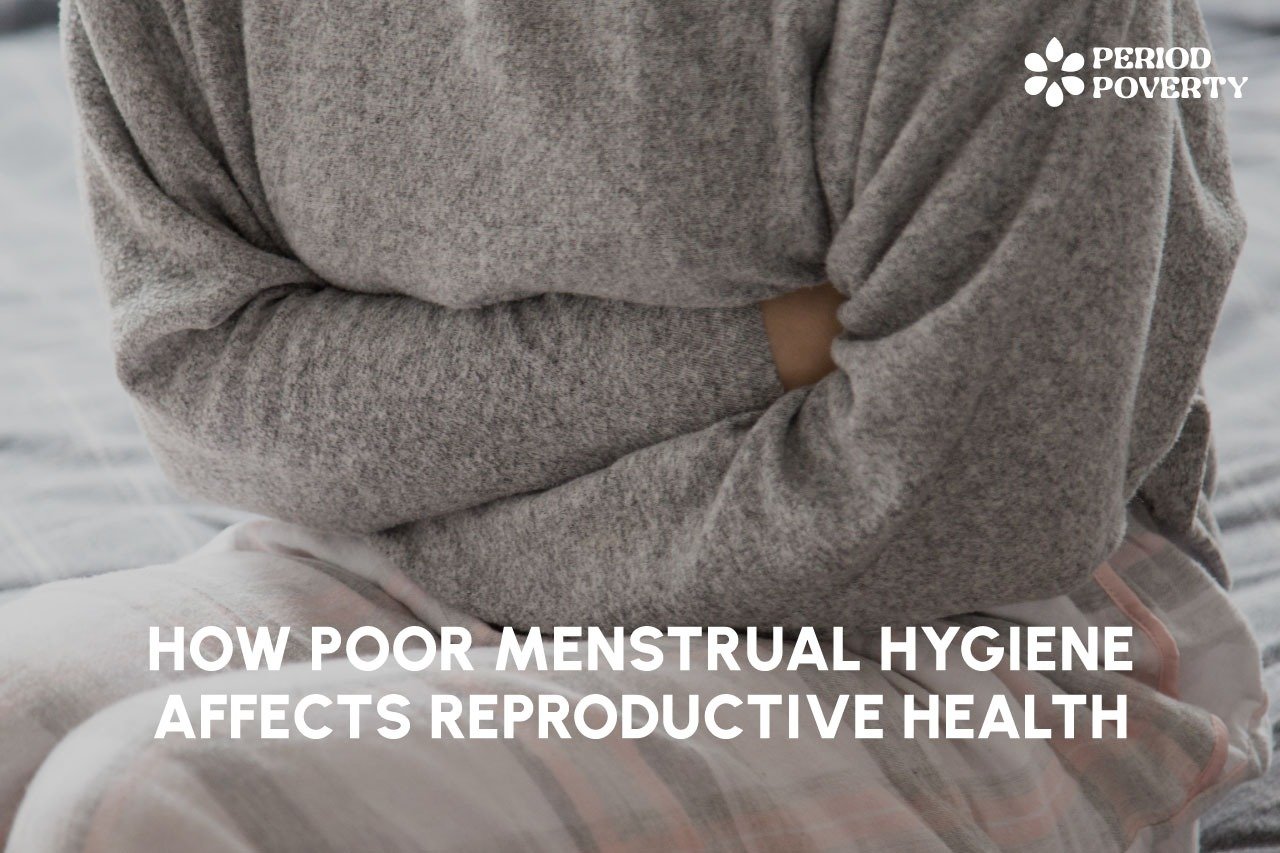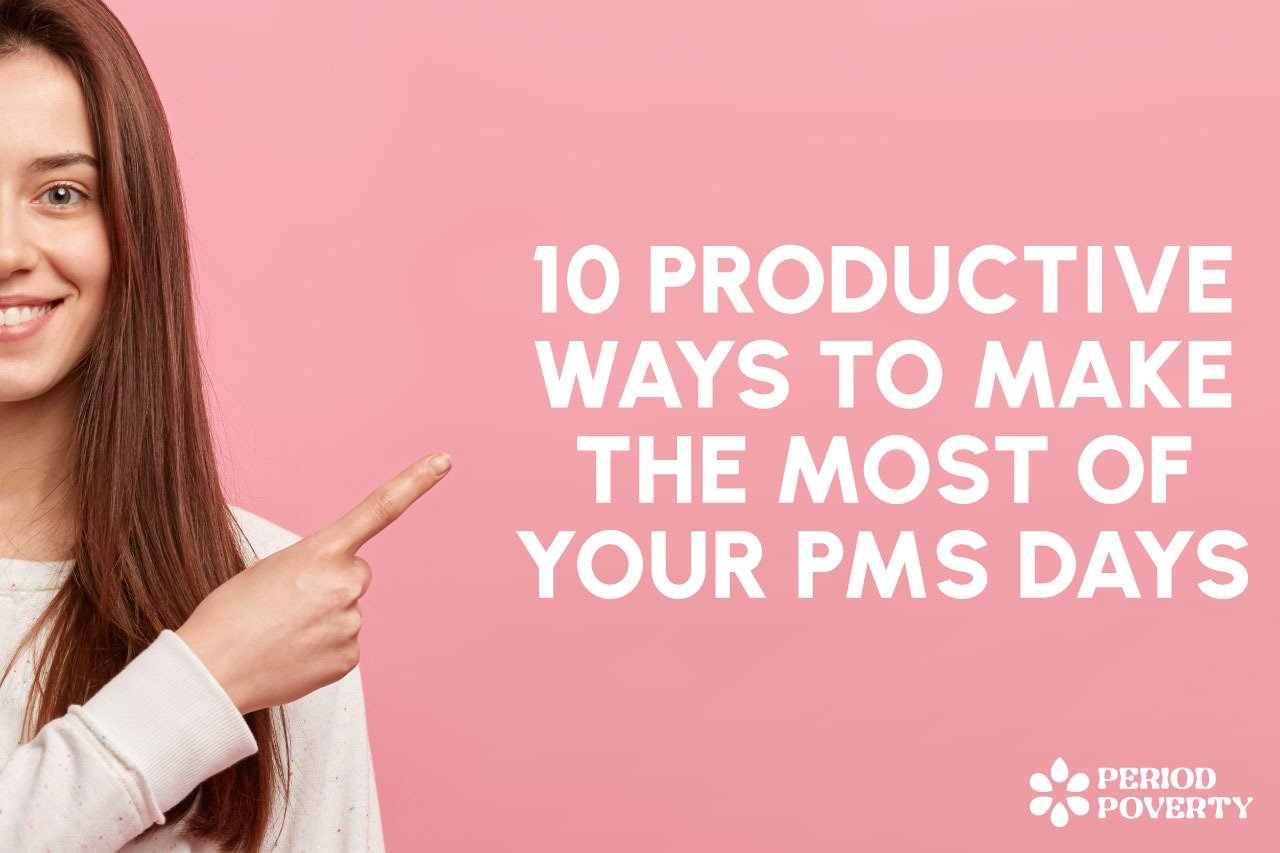Menstruation is a natural and inevitable part of a person’s life, but it can often bring discomfort and inconvenience. However, by prioritizing self-care during this time, you can significantly improve your period experience and promote a greater sense of well-being. Taking care of yourself not only alleviates physical discomfort but also supports your emotional and mental health. In this article, we will explore the five best things you can do for yourself during your period, empowering you to embrace this natural process with grace and ease.
- Nourish Your Body
Nourishing your body is essential for overall well-being, and it becomes particularly important during menstruation. A balanced and nutritious diet can help alleviate menstrual symptoms, support energy levels, and promote a healthier period. When it comes to nourishing your body during this time, focus on consuming nutrient-dense foods that provide the necessary vitamins, minerals, and antioxidants. Incorporate a variety of fruits, vegetables, whole grains, lean proteins, and healthy fats into your meals to ensure you’re getting a wide range of nutrients.
Fruits and vegetables are rich in vitamins, minerals, and fiber, which can help reduce bloating, support digestion, and provide essential antioxidants for cellular health. Opt for colorful options like berries, leafy greens, citrus fruits, and cruciferous vegetables such as broccoli and cauliflower. Whole grains like quinoa, brown rice, and oats are excellent sources of fiber and can help regulate blood sugar levels, provide sustained energy, and support digestive health.
Lean proteins such as chicken, fish, tofu, and legumes are important for repairing and building tissues, and they can help stabilize blood sugar levels and promote satiety. Additionally, incorporating healthy fats from sources like avocados, nuts, seeds, and olive oil can help reduce inflammation, support hormone balance, and provide a feeling of fullness. Remember to stay hydrated by drinking plenty of water, herbal teas, and natural juices to support overall hydration and promote optimal bodily functions.
By nourishing your body with a well-rounded and nutrient-rich diet, you can support your overall health and well-being during menstruation. Remember to listen to your body’s needs, make choices that work best for you, and consult with a healthcare professional or registered dietitian if you have specific dietary concerns or requirements. Prioritizing nourishment during your period can have a positive impact on your energy levels, mood, and comfort,
- Prioritize Rest and Relaxation
During menstruation, prioritizing rest and relaxation is vital for supporting your body’s natural processes and overall well-being. Your body undergoes hormonal changes and physical adjustments during this time, which can lead to fatigue and discomfort. By intentionally carving out time for rest and relaxation, you can enhance your period experience and promote a healthier mind-body balance.
One of the most effective ways to prioritize rest is by ensuring you get an adequate amount of sleep. Aim for 7-9 hours of quality sleep each night to support your body’s natural healing and rejuvenation processes. Create a calming bedtime routine by dimming the lights, disconnecting from electronic devices, and engaging in relaxation techniques such as reading a book, practicing gentle stretches, or taking a warm bath.
In addition to sleep, incorporating relaxation practices into your daily routine can significantly benefit your well-being. Activities such as meditation, deep breathing exercises, and gentle yoga can help calm your mind, reduce stress levels, and alleviate tension in your body. These practices not only promote relaxation but also enhance self-awareness and emotional balance, allowing you to navigate your menstrual cycle with greater ease and resilience.
Whether it’s enjoying a cup of herbal tea, indulging in a soothing massage, or simply curling up with a good book, prioritize activities that promote rest and rejuvenation. By prioritizing rest and relaxation during your period, you can help alleviate physical and emotional symptoms, reduce stress, and support your body’s natural healing processes. Remember, self-care is not selfish; it is an essential component of maintaining
- Exercise and Movement
Exercise and movement play a crucial role in maintaining physical and emotional well-being during menstruation. While it may seem counterintuitive to engage in physical activity during this time, moderate exercise can actually provide numerous benefits and help manage menstrual symptoms more effectively. Regular exercise has been shown to reduce menstrual cramps by promoting the release of endorphins, which are natural pain relievers. It also helps increase blood flow, which can alleviate bloating and reduce water retention. Additionally, exercise can boost mood and reduce feelings of anxiety or irritability that may accompany hormonal fluctuations.
When it comes to exercise during menstruation, it’s important to listen to your body and choose activities that feel comfortable and supportive. Opt for low-impact exercises such as walking, swimming, yoga, or cycling, which can help improve circulation and reduce muscle tension without putting excessive strain on your body. Engaging in gentle stretching exercises can also help alleviate pelvic pain and promote relaxation. It’s worth noting that everyone’s body and energy levels are different during menstruation, so it’s important to adjust your exercise routine accordingly. If you typically engage in high-intensity workouts, you may want to consider scaling back or modifying the intensity during your period.
In addition to structured exercise, incorporating regular movement throughout the day is beneficial. Take short walks, stretch at regular intervals, or engage in activities like dancing or gardening to keep your body active and improve circulation. Staying physically active can help reduce fatigue and improve overall energy levels. It’s essential to stay properly hydrated before, during, and after exercise, especially during your period. Make sure to drink plenty of water and replenish electrolytes as needed. Additionally, wearing comfortable and supportive clothing and using menstrual products that allow for freedom of movement will enhance your exercise experience.
Remember, everyone’s menstrual experience is unique, and it’s important to listen to your body’s needs. If you experience severe pain, excessive fatigue, or any other concerning symptoms during exercise, it’s best to consult with a healthcare professional for personalized advice. Incorporating exercise and movement into your routine during menstruation can help manage symptoms, improve mood, and promote overall well-being. By finding the right balance and listening to your body, you can harness the benefits of physical activity to support a healthier and more comfortable period experience.
- Embrace Self-Care Rituals
Embracing self-care rituals during menstruation is a powerful way to nurture and support your physical, emotional, and mental well-being. These intentional acts of self-care can provide comfort, reduce stress, and promote a greater sense of balance and self-connection during this time. One essential self-care ritual during menstruation is creating a calm and soothing environment. Designate a quiet space where you can retreat and find solace. Dim the lights, play soft music, and surround yourself with cozy blankets or pillows to create a peaceful atmosphere that promotes relaxation. This dedicated space can become a sanctuary for you to engage in self-care practices.
Pampering your body is another wonderful self-care ritual during your period. Treat yourself to a warm bath infused with Epsom salts or essential oils, as it can help alleviate muscle tension and promote relaxation. Incorporate gentle self-massage techniques using oils or lotions to soothe any discomfort and promote circulation. You can also indulge in skincare rituals, such as using a face mask or taking extra care with your skincare routine, to nourish your skin and enhance your sense of well-being.
Engaging in activities that bring you joy and help you unwind is an integral part of self-care during menstruation. This can include reading a book, listening to music, practicing a creative outlet like painting or crafting, or journaling to reflect on your emotions and experiences. Prioritize activities that bring you a sense of pleasure, relaxation, and rejuvenation, allowing you to reconnect with yourself and find moments of peace amidst the demands of daily life.
Nurturing your body through nourishing meals and snacks is also a significant self-care practice. Prepare and enjoy foods that are both nutritious and comforting. Opt for warm, nourishing soups, herbal teas, and nutrient-rich meals that include plenty of fruits, vegetables, and whole grains. Listening to your body’s cravings and providing it with nourishing sustenance can have a positive impact on your energy levels and overall well-being during menstruation.
Lastly, embracing self-compassion and practicing self-acceptance are essential components of self-care during your period. Be kind to yourself and let go of any judgment or negative self-talk. Allow yourself to rest when needed, set realistic expectations, and honor your body’s needs and limitations. Remember that your menstrual cycle is a natural and essential part of your life, and embracing self-care rituals is a way to honor and support your body through this process.
- Practice Mindful Menstruation
Practicing mindful menstruation involves cultivating a conscious and compassionate approach to your menstrual cycle. It’s about embracing your period as a natural and sacred process and connecting with it on a deeper level. By incorporating mindfulness into your menstrual experience, you can enhance your self-awareness, manage symptoms more effectively, and foster a positive relationship with your body.
One key aspect of mindful menstruation is developing a heightened awareness of your body’s cues and needs during different phases of your cycle. Take time to observe and listen to your body, noticing any physical sensations, emotions, or changes that arise. By tuning in, you can gain a better understanding of your unique menstrual patterns and how they impact your well-being. This self-awareness allows you to respond with kindness and make choices that support your body’s needs throughout each phase of your cycle.
Mindful breathing exercises can be particularly helpful during menstruation. Taking a few moments each day to focus on your breath can help calm the mind, reduce stress, and alleviate discomfort. Engaging in deep belly breaths or practicing specific breathing techniques, such as diaphragmatic breathing or alternate nostril breathing, can promote relaxation and balance your energy.
Cultivating self-compassion is another important aspect of mindful menstruation. Embrace self-acceptance and let go of any negative judgments or expectations surrounding your period. Recognize that menstruation is a natural and normal part of your body’s rhythm. Treat yourself with kindness, understanding, and patience during this time. Practice positive self-talk and affirmations to counter any negative beliefs or societal taboos related to menstruation. Embrace the notion that your menstrual cycle is a source of power and strength rather than something to be ashamed of or hidden.
Lastly, remember to approach your menstrual cycle with curiosity and openness. Seek knowledge about the changes happening in your body and the various phases of your menstrual cycle. Educate yourself about the hormonal shifts and how they influence your physical and emotional well-being. By understanding your cycle, you can make informed choices that support your overall health and self-care practices. Practicing mindful menstruation allows you to deepen your connection with your body, honor your unique cycle, and embrace the transformative power of your menstrual experience. By being present, compassionate, and attuned to your needs, you can navigate your period with grace, understanding, and a sense of empowerment.
It’s important to remember that self-care during menstruation is a personal journey, and each individual’s experience may vary. What works for one person may not work for another. Therefore, it’s essential to prioritize what feels best for you and listen to your body’s unique needs and cues. Approach your menstrual health with a positive and self-compassionate mindset. Let go of any societal stigmas or negative beliefs surrounding menstruation. Instead, view it as a natural and beautiful process that connects you to your body’s wisdom and cycles. Embrace this opportunity to honor and care for yourself during this natural process, and may your journey be filled with comfort, empowerment, and self-discovery.






